
Hans Moser
06-08-1880
Birthday
Leo
Zodiac Sign
-
Genres
150
Total Films
Ханс Мозер
Also known as (male)
Wien, Austria
Place of Birth
06-08-1880
Birthday
Leo
Zodiac Sign
-
Genres
150
Total Films
-
Also Known As (male)
Wien, Austria
Place of Birth

06-08-1880
Birthday
Leo
Zodiac Sign
-
Genres
150
Total Films
Ханс Мозер
Also known as (male)
Wien, Austria
Place of Birth
06-08-1880
Birthday
Leo
Zodiac Sign
-
Genres
150
Total Films
-
Also Known As (male)
Wien, Austria
Place of Birth
actor
150 Works
producer
0 Works
director
2 Works
writer
2 Works
other
0 Works
Leutnant Gustl
Year:
1963
Kaiser Joseph und die Bahnwärterstochter
Year:
1963
Liliom
Year:
1963

Mariandl's Homecoming
Year:
1962

Drei Liebesbriefe aus Tirol
Year:
1962

Der verkaufte Großvater
Year:
1962
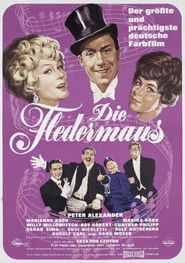
Die Fledermaus
Year:
1962
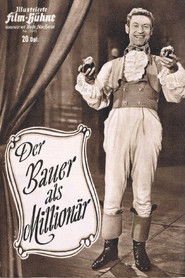
Der Bauer als Millionär
Year:
1961
Geschichten aus dem Wienerwald
Year:
1961

Höllenangst
Year:
1961

Mariandl
Year:
1961
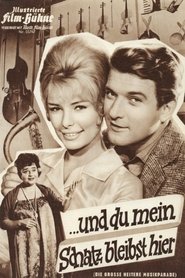
… und du mein Schatz bleibst hier
Instead of attending seminars and lectures at the University of World Trade, Peter Baumann prefers to work exclusively in the student orchestra. With his friends Hans, Tommy, Udo, Gus and Max, he tries so far in vain to get a recording contract or at least an audition in the Wiener Stadthalle.Year:
1961
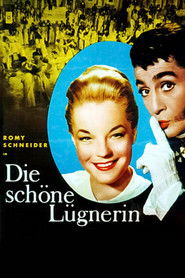
Die schöne Lügnerin
In 1815 Vienna, a corsetmaker falls in love with a valet.Year:
1959

Herrn Josefs letzte Liebe
Year:
1959
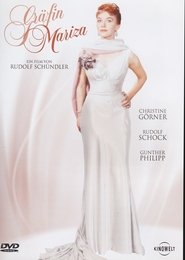
Countess Mariza
Paying a rare visit to her estate, a countess clashes with the man she hired to manage it.Year:
1958
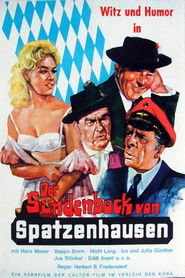
Der Sündenbock von Spatzenhausen
Year:
1958

Ooh... diese Ferien
Year:
1958
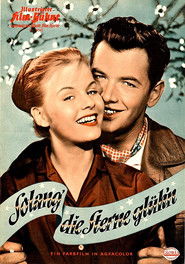
Solang' die Sterne glüh'n
Year:
1958

Hello Taxi
A comedy directed by Hermann Kugelstadt.Year:
1958
Liebelei
Year:
1958

Heute blau und morgen blau
Year:
1957

Die Lindenwirtin vom Donaustrand
Year:
1957
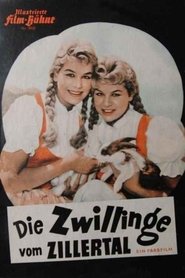
Die Zwillinge vom Zillertal
Year:
1957
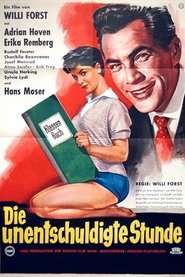
Die unentschuldigte Stunde
Year:
1957
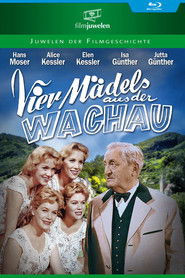
Vier Mädels aus der Wachau
Year:
1957
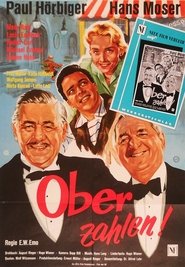
Ober zahlen
Vienna, 1957: Head waiters Gustav (Paul Hörbiger) and Franz (Hans Moser) are working for the stinted Cafétier Panigl and are close friiends despite of their different characters. Franz is happily married and a good family father, Gustav, a relaxed charmer, is living a calm single life. Overnight both of them become jobless, because Panigl decided to sell his Café which was not successful anymore. Right in this moment, Franz' brother is sending 20.000 Dollar from USA. Money, he once peculated and now wants to pay back.. Gustav and Franz are buying half of the Café for each from the unexpected money. One half they develop as the modern Musicbox-Espresso «Pinguin», the other half as a traditional old style Vienna Café . Misunderstandings between guests and generations are inevitable and stretch the long term friendship of the two waiters.Year:
1957

Solange noch die Rosen blüh'n
Another German Heimatfilm.Year:
1956
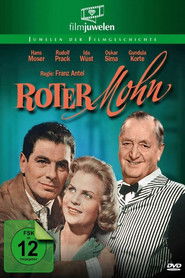
Roter Mohn
Year:
1956

Kaiserball
Year:
1956

Meine Tante, deine Tante
Year:
1956

Opernball
Year:
1956

Lumpazivagabundus
Year:
1956
The Three from the Filling Station
Three young men working at a filling station fall in love with the same woman.Year:
1956
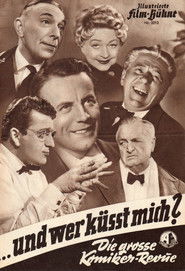
.. und wer küsst mich?
Year:
1956

Symphonie in Gold
Revue film on ice.Year:
1956

Three from the Gasoline Station
Robert, Peter and Fritz are the best of friends ... and hopelessly broke. But they don't let that stop them and in short order, they end up renting a deserted gas station. With just a little bit of wit and some elan, they'll bring the old girl back to life and all will look rosy ... until all three of them fall in love with the same dame: Gabi, the daughter of the director of a large gasoline firm. Thanks to her, their eternal friendship is really going to be put to the test.Year:
1955

The Congress Dances
Congress of Vienna, 1815: In order to lure certain monarchs away from the conference, the Austrians instigate a ceaseless sequence of operas and balls. Indeed, Russian Czar Alexander is distracted when he falls for a beautiful salesgirl.Year:
1955
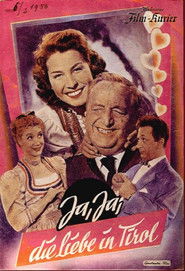
Ja, ja, die Liebe in Tirol
Year:
1955
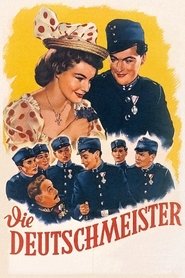
Die Deutschmeister
Young Stanzi who is visiting Vienna helps a young corporal and musician to become famous for his marching song "Die Deutschmeister".Year:
1955
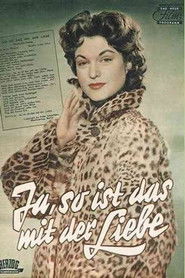
Ja, so ist das mit der Liebe
Year:
1955

Verliebte Leute
Year:
1954
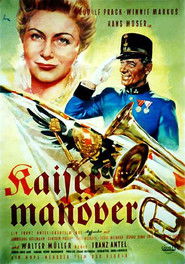
Imperial Manoeuvres
In Franz Joseph I's Vienna, Captain Eichfeld publishes a witty satire on imperial Austrian army abuses, using the pseudonym "Spectator." It's popular, but Eichfeld dares not reveal his identity, as he wants the hand of conservative General von Trattenbach's daughter. His race rival blackmails both lovers.Year:
1954

Hollandmädel
Year:
1953
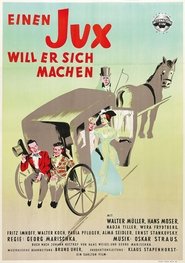
Einmal keine Sorgen haben
Year:
1953
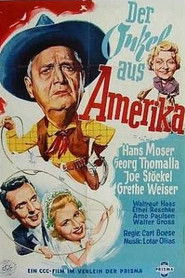
Der Onkel aus Amerika
Year:
1953
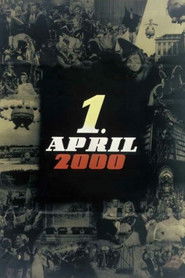
April 1, 2000
It is the year 2000 and the World Global Union is in charge, although other countries are allowed to elect their own government leaders, as long as they support the Union. When Austria's newly-elected president, played by Josef Meinrad, makes his inauguration speech he declares Austria independence and issues an edict ending Austria's financial support for the Global Union.Year:
1952

Schäm' dich, Brigitte!
Year:
1952
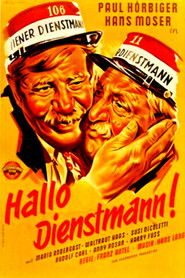
Hello Dienstmann
Year:
1952
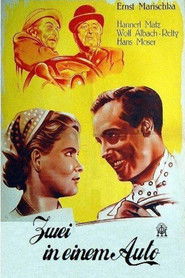
Zwei in einem Auto
Year:
1951
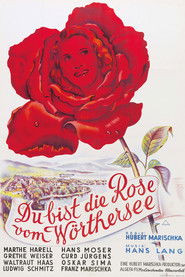
Du bist die Rose vom Wörthersee
A formerly unsuccessful musician comes back to his homeland in Carinthia as a famous composer via Broadway and woos his widowed childhood sweetheart.Year:
1951

Es liegt was in der Luft
Year:
1950
Küssen ist keine Sünd
Year:
1950

Jetzt schlägt's 13
Year:
1950

Der Theodor im Fußballtor
Year:
1950
Meisterringer
Year:
1949

Um eine Nasenlänge
Year:
1949
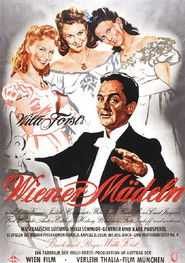
Vienna Girls
Begun in Austria in 1944/45, finished and released in 1949, this is a biography of the minor Austrian composer Carl Michael Ziehrer, who overcomes hypersensitivity in competitive situations which leads initially to failures in both career and romance.Year:
1949
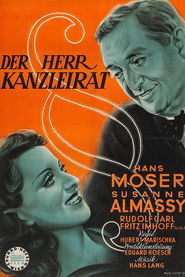
Der Herr Kanzleirat
Year:
1948
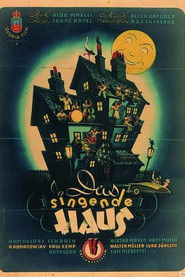
Das singende Haus
Year:
1948
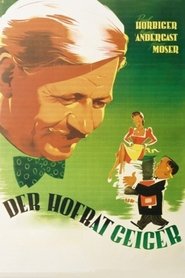
Der Hofrat Geiger
Year:
1947

The World Turns Backward
Franz Xaver Silvester Pomeisl travels thru the decades looking for the good old times.Year:
1947
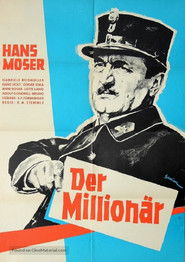
Der Millionär
Year:
1947
Renee XIV
Year:
1946
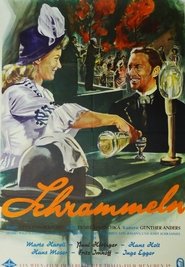
Schrammeln
Year:
1944
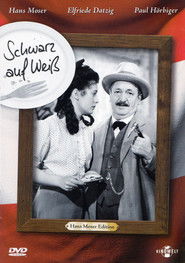
Schwarz auf weiß
Vienna, around 1900. The master baker Streussler’s most ardent wish is to see his daughter Nelly as a student at the university. With the help of his famous “streusel cake” he succeeds in luring all kinds of helpers for this endeavor into his house. But Nelly has entirely different plans: she is in love with the chimney sweep Heinz, the son of a neighbor, with whom Papa Streussler has been fighting for years. So it’s no wonder then, that the grump confectioner is doing everything he can to break up the relationship.Year:
1943

Trip Acquaintance
A nervous private investigator, his bumbling boss, a woman in love, 10,000 Reichsmark and two reversed cases. A crime comedy directed by E. W. Emo.Year:
1943
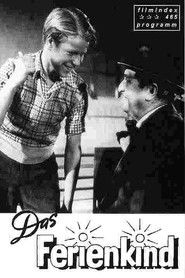
Das Ferienkind
Year:
1943
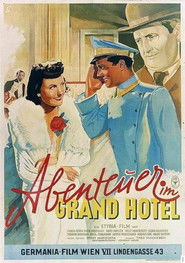
Adventure in the Grand Hotel
The impoverished Count Lerchenau works under the name Rudi Lindt as a chauffeur. Because he is so well-loved by women, he lost his last position. His former servant Franz has not abandoned him in his time of need and the servant keeps trying to find a rich bride for the former Count. In the Grand Hotel, where the Count is supposed to be finding a suitable mate, he instead flirts with the attractive Alice. In order to get a job with the employer Ottokar Frühwirt, Rudi uses Count Lerchenau as a reference. But then the employer wants to speak with Lerchenau and Franz has to play the role of the Count. Alice, it turns out, is the employer's niece. When she finds out that Rudi is only a chauffeur, she wants nothing to do with him.Year:
1943

Karneval der Liebe
Year:
1943

Mask in Blue
Gifted amateur dancer gets her big break on the Berlin Stage in this wartime romantic comedy.Year:
1943

Einmal der liebe Herrgott sein
Year:
1942

Sieben Jahre Glück
Year:
1942

Vienna Blood
Young Count Georg Wolkersheim is sent to the Congress of Vienna to represent the interests of his country, Reuss-Schleiz-Greiz. Tensions arise between the count, his wife Melanie, and their two chamberlains, and when the four attend a court ball, Melanie leaves Georg, assumes the identity of a famous actress, and attracts the affections of Crown Prince Ludwig of Bavaria.Year:
1942
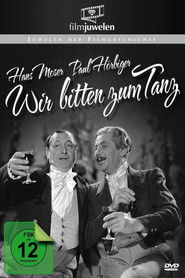
Invitation to the Dance
Vienna around 1900. Karl Hofeneder, owner of a dance school, puts great importance on teaching his students not only the right steps but also good behavior. Twenty years ago, the bachelor lost the love of his life to his friend and competitor Georges Roublée. The two have been enemies ever since. Hofeneder is annoyed when he finds out that Roublée wants to open a second dance school locally.Year:
1941
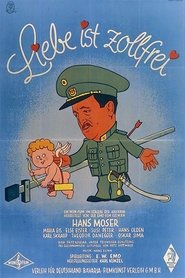
Liebe ist zollfrei
Year:
1941
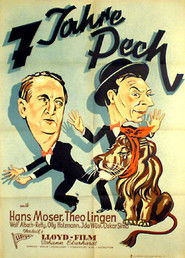
Sieben Jahre Pech
Year:
1940
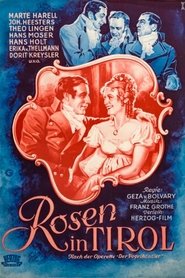
Rosen in Tirol
Year:
1940

Der Herr im Haus
Year:
1940
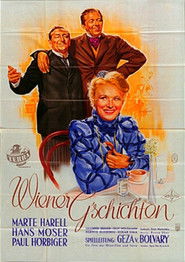
Vienna Tales
A nostalgic story about life in and around a classic Vienna coffee house. The film is set in Imperial Vienna at the beginning of the twentieth century.Year:
1940
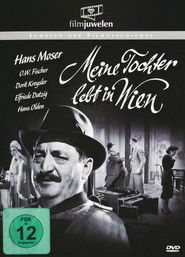
Meine Tochter lebt in Wien
Year:
1940
Unfaithful Eckehart
An exchanged suitcase and a burglary with an actress give occasions to whirl a family with daughters-in-law and brides hard in a mess. Old mistake comedy according to pattern.Year:
1940

Opera Ball
After the operetta of the same name of Richard Heuberger in 1890-1914 all kinds of situation comic from happy-go-lucky Vienna of the turn of the century, the time of the first cars and the absurd bath costumes: Husbands in the Chambre Separee, her little dizziness and mistake plays, the tumultuous whirl of a grand ball... - A high-spirited comedy at considerable entertainment level.Year:
1939

Anthony the Last
Comedy with Hans Moser as grumpy valet who takes corrective action with mumbling peevishness in the fortunes of his family household count.Year:
1939
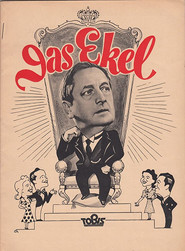
The Grouch
Year:
1939
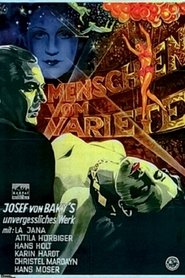
Menschen vom Varieté
In a cosmopolitan city vaudeville theatre, meeting place of the most successful artistes, the art shooter gets in suspicion to have committed a murderous poster on his jealous partner. - Not particularly successful mixture of vaudeville theatre numbers, artiste's destiny and crime film tension, on an average produced and played. A production rotated in Budapest with the popular dancer La Jana.Year:
1939

Liebe streng verboten
In the eve of the war between Vienna and Berlin playing dear comedy with then popular occupation: The mother wants to marry her daughter to the lord of the manor, but the daughter prefers the elegant hoteliers.Year:
1939
Castles in the Air
Year:
1939

Little Country Court
An overzealous usher caught between the fronts of two other litigants against ever-girlfriends. - Humor comedy Viennese provenance with a starring role for Hans Moser.Year:
1938

13 Chairs
A classical art junk dealer and an almost bankrupt hairdresser who unexpectedly makes an inheritance go hunting behind thirteen chairs from which of a 100,000 DM contains which the rich aunt has hidden there.Year:
1938
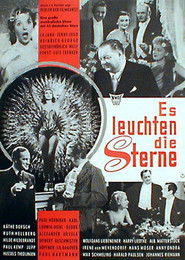
The Stars Shine
German all-star musical from 1938 that was a big commercial success.Year:
1938

The Restless Girls
Four orphaned friends move after the Abitur, supported by the janitor of her school, together in a flat and look for work to be able to finance her study. Two make the acquaintance of a frivolous young baron. One shoots in her outrage at him, nevertheless, is acquitted in court. - Stereotyped Jung's girl's cheap sensationalism, broken up by popular comic. Hans Moser stands out by his delightful character comic. The last in Austria produced film before the invasion of the armed forces ('Wehrmacht').Year:
1938
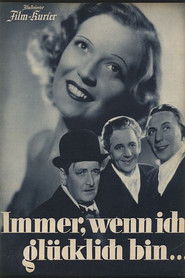
Waltz Melodies
The big revue star Marietta falls in love and gives up the stage career. The theatre stands before the bankruptcy. Only when her husband has convinced himself that she will remain loyal to him, Marietta may go on working. Revue film according to pattern: a lot of music, sturdy situation comic and popular stars.Year:
1938
Mother Song
A romance between two temperamental singing stars. Highlights include a lengthy selection from Faust, with Gigli making a most impressive Mephistopheles. The plot takes a melodramatic turn towards the climax, with the lives of the characters mirrored in their on-stage behavior. Director Carmine Gallone was something of an expert in the field of filmed opera, as witness his Tosca, Rigoletto and Il Trovatore.Year:
1937
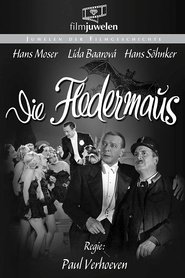
Die Fledermaus
The delightful Johann Strauss comic opera Die Fledermaus was mercilessly lampooned in this truly bizarre production. For starters, a framing device has been added: After appearing in 300 consecutive appearances of Fledermaus (which translates as The Bat) the lead tenor (Georg Alexander) imagines that he's seeing bats everywhere. Driven a bit over the edge by all this, he falls asleep and has a nightmare about the opera, with a group of non-singers cast in the leading roles. The original libretto about romantic assignations, political imprisonments and mistaken identity is burlesqued to the hilt: at one point, the hero finds out that his prison cell is surrounded by rubber tubes!Year:
1937
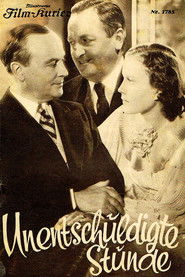
Unentschuldigte Stunde
When the schoolgirl Kate defends her friend, she is expelled from school. To conceal the incident from her parents, she positions herself ill. Promptly she falls in love with the treating doctor who cures her sudden illness not only, but marries his patient also immediately. But Kate soon bores the life of a doctor's wife. So she decides to secretly catch her high school.Year:
1937
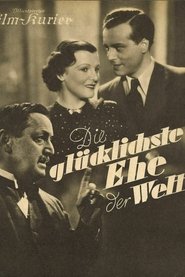
The Happiest Married Couple in Vienna
The happiest one should be selected from 500 married couples to move a marriage-hostile American millionnaire's daughter to the marriage. - Shallow and turbulent love banter with some tumultuous and funny climaxes.Year:
1937
Die verschwundene Frau
An official justice assistant supposes behind a letter which falls to him by chance in the hands, a crime and gets going with his crimi-sleuthing energy an unclear confusion.Year:
1937
My Son the Minister
Sylvia has succeeded in making her son Robert a minister in the French Republic. His old servent, Gabriel, interrupts the young man during an "erotic" conference with the singer Betty. She's there, because her politically inappropriate songs is about to get her banned from the stage, which the minister would like to prevent. A fight breaks out between Robert and Gabriel and Sylvia, his mother, has to confess to Robert, that Gabriel is actually his father. When the minister once again misbehaves, this time at a ball, his servant and father Gabriel decides that the time has come to slap his son in everyone's presence. Robert is forced to resign and a journalist from the People's Front suggests Gabriel for the post of minister. - The film was classified after the end of the german third empire as a reservation film.Year:
1937

The Man Who is Talked About
The Man Who is Talked About is the overly agreeable Toni Mathis (Heinz Ruhmann), a gent constitutionally incapable of saying the word "no" (or "nein," this being a German picture). Though he'd rather breeze through life without responsibilities or obligations, Toni agrees to study zoology in college because his uncle (Hans Moser) wants him to. Alas, despite the Herculean efforts by Toni's servant Hassler (Theo Lingen) to prepare his master for his final exams, Toni forgets to show up for the finals and is expelled post-haste. In desperation, his uncle arranges for Toni to get married, and once again our hero just can't say no. Trouble is, he falls in love with trapeze artist Bianca (Gusti Huber), whose father won't let her marry anyone except another entertainer. Undaunted, Toni studies a book on show business and tries out for the vaudeville stage, and the picture isn't even halfway over yet!Year:
1937
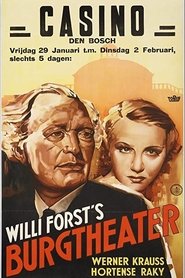
Burg Theatre
In this convoluted melodrama, an elderly thespian falls for a rising young starlet. He admits his love for her and then announces that he will retire. The young woman pretends she loves him too, but her real motive is to give her struggling lover, also an aspiring actor, a break.Year:
1936

Hannerl und ihre Liebhaber
Everyday and social drama. In Vienna a girl from the people about social prejudices finds away the esteem and love of an airplane industrialist.Year:
1936

A Little Street in Paradise
A poor dog catcher in Prague takes up an orphan's boy who finds his favorite bull with him, with himself, until both find a better home, finally, with a rich family. - In antiquated style with put on warmth told comedy.Year:
1936

A Hoax
Absurd mistakes arise when the passengers of a burnt down sanitarium are quartered at a hotel. -Humble-tumultuous comedy with situation joke and proven comedians.Year:
1936
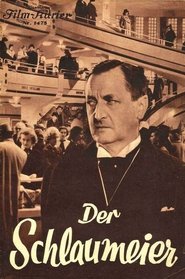
All for Veronica
Year:
1936

Konfetti
Confusion comedy with musical interludes around a carnival ball, to dare the pretty shop assistant for a fashion store with one of the best gowns of her salon and posing in her embarrassment as the wife of a guest. - Harmlessly entertaining comedy, a little bit too poorly to bring to bear the first-time meeting of three most popular Austrian comic specialists Moser-Slezak-Romanowsky at that time appropriately.Year:
1936

Wer zuletzt küßt...
On the occasion of a charity ball in Vienna a kiss of a famous actress should be auctioned. Misunderstandings between the manager of the film star, a record producer and a student lead too all kinds of mistakes, during which a student is mistaken for a prince in disguise and almost breaks his hapiness. - Quickly and expertly produced mistake comedy with a lot of singing desposits and an at than popular comedian line-up, which offers amusing surface entertainment.Year:
1936

Familie Schimek
For three difficult orphans living by her aunt the former employee of the family searches a new premouth; he releases with it a result of tumultuous involvements. - Humble-entertaining mistake farce, completely fitted on Hans Moser.Year:
1935

Zirkus Saran
Knox owns half of the Circus Saran and acts as a clown there. He hides his circus life from his daughter and is very embarrassed when his daughter finds out his true profession. Hans Moser, who plays Knox, performs poorly, because the character he plays is simply not funny. Leo Slezak, who owns the other half of the circus, as well as Pat and Patachon perform better. The only really good thing about this film is its music, composed by Robert Stolz; especially the song "Ein bisschen Sing-Sang und gute Kameradschaft" , which can be heard throughout the movie.Year:
1935

Buchhalter Schnabel
Year:
1935

The World's in Love
A Hungarian squire and his son compete for the favour of an operetta diva; the younger makes the running. - Unplausible mistakes, small intrigues and a lot of love in an old-fashioned musical comedy with proven comedians.Year:
1935

Only a Comedian
A moving actor at the rococo era shows the power-hungry-crude minister of a small state prince in the barriers, while he makes use of his resemblance to the sovereign and slips in his role. - Double role for Rudolf Forster who plays his figures very much chilly.Year:
1935

Eva, the Factory Girl
A famous racing driver must give up his sport and take over the management of the porcelain factory on incentive of the vigorous grandmother as the last shoot of an old businessman's family. Unrecognized he is regulated as a worker what a love story with a 20-year-old worker arises from, who leads after incidents in the happy end. - After Franz Lehar's operetta produced comedyYear:
1935
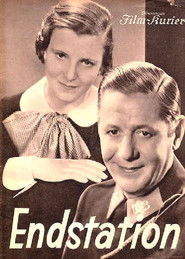
Last Stop
Endstation offers the American viewer tantalizing glimpses of busy, bustling mid-1930s Vienna. Otherwise, this minor yarn of an amorous streetcar conductor is strictly formula material. The film benefits from the star power of Paul Horbiger, resplendently garbed in an elaborate conductor's uniform. Also worth noting is the performance of Maria Andergest as the woebegone hatmaker whose fate is inextricably linked with hero Horbiger. Incidentally though the direction is credited with one E. W. Emo, Paul Horbiger actually called most of the shots on Endstation.Year:
1935
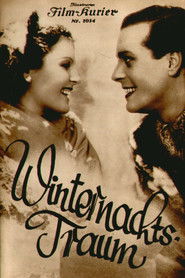
Winter Night's Dream
The wintry mountainscapes of Bavaria provide the backdrop for this airy German comedy. The story is set in motion when young clerk Boenecke (Richard Romanowsky) accidentally delivers a check to the wrong bank. Boenecke's boss Schumann (Walter Steinbeck) suspects the clerk of embezzlement -- especially since our hero has taken off on an extended Alpine vacation with his sweetheart Hilde (Magda Schneider). Before this comic chain reaction can be straightened out, hero and heroine have become entangled with a gang of female pickpockets. Essentially a "moonlight and strudel" confection, Winterachtstraum was perfect escapist entertainment for Magda Schneider's legions of fans.Year:
1935

Suburban Cabaret
In Vienna of 1913 a young woman coming from vaudeville theatre circles stands before the wedding with a construction draftsman; this must move to the military and sends his bride on the country, so that she cannot be enticed to the stage. However, she does it and gets by an officer's love affair so in confusion that she commits suicide. - This end environment-close and differentiates of produced melodrama was rejected by press and audience vehemently; the new second film end with the rescue of the desperate was supplied later, so that in this version only a bittersweet common melodrama with excellent actors and good photograph was left. In the rental company copy is the second version of the end jointly contain.Year:
1935

Die Fahrt in die Jugend
Year:
1935

Heaven on Earth
A poor composer who should buy a property for his ambitious father-in-law finances with the money, nevertheless, an opera. Together with his friend who must play a husband to his strict rich aunt, he makes to himself a fun from the mistakes which cause her feints.Year:
1935

High School
The love of a young Austrian aristocrat to a circus rider is put on a heavy load test when becomes obvious that the former officer has killed the brother of the young woman, a traitor of the country, in the duel.Year:
1934
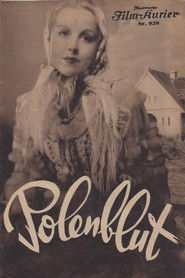
Polish Blood
The daughter of a landowner helps save an aristocratic neighbor from ruin, in this operetta adaptation.Year:
1934
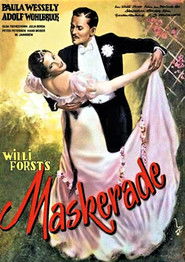
Masquerade in Vienna
After a masked carnival ball, Gerda Harrandt, wife of the surgeon Carl Ludwig Harrandt, allows the fashionable artist Ferdinand von Heidenick to paint a portrait of her wearing only a mask and a muff. This muff however belongs to Anita Keller, in secret the painter's lover but also the fiancée of the court orchestra director Paul Harrandt. The picture is then published in the newspaper. When Paul sees it and asks von Heidenick some questions about the identity of the model, the artist is forced to improvise a story and on the spur of the moment invents a woman called Leopoldine Dur as the alleged model. Leopoldine Dur however turns out to be a real woman whose acquaintance Heidenick makes shortly afterwards.Year:
1934
Spring Parade
This Hungarian musical comedy (English title: Spring Parade) was produced by Joseph Pasternak, who later remade the picture in Hollywood as a Deanna Durbin vehicle. The original 1934 version stars Franciska Gaal as a Hungarian serving girl who heads to Vienna to visit a relative. Stopping over at an outdoor carnival, Gaal is told by a fortune teller that she will enjoy a happy marriage with a handsome and wealthy stranger. Later on, she finds herself at a fancy dress ball, where a good-looking aristocrat, assuming that our heroine is a countess masquerading as a peasant, falls in love with her. Delighted that the fortune-teller's prophecy seems to be coming true, Gaal finds herself in a dilemma when she falls in love with poverty-stricken soldier Wolf Albach Retty. But things turn out OK when Retty, the regimental drummer, composes a hit song which brings him fame and fortune, thereby neatly fulfilling that prophecy.Year:
1934
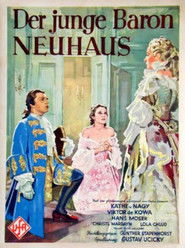
Der junge Baron Neuhaus
Year:
1934

Frasquita
Czechoslovakian opera star Jarmila Novotna plays the title role in the Austrian tunefest Frasquita. Based on a Franz Lehar operetta, the story is the usual frothy nonsense. Dolly (Charlotte Daudert) is engaged to marry Hyppolit (Heinz Ruhmann), but she's really in love with Harold (Hans Heinz-Bollman). Hyppolit is likewise enamored of another, namely Frasquita (Jarmila Novotna). Alas, Dolly and Hyppolit must go through with the wedding, despite the dictates of their hearts. That there's a happy ending all the same comes as a surprise only to the characters on the screen.Year:
1934

Carnival of Love
A popular, big spending matinee idol chases a blonde while trying to elude a heartless creditor.Year:
1934

Die Töchter ihrer Exzellenz
Year:
1934
Kurzschluß
Year:
1933
Fuchs auf der Hetzjagd
Year:
1933

Lover Divine
A section from the life of composer Franz Schubert as a material for a love story. Also known in English as Gently My Songs Entreat. An English version called Unfinished Symphony would follow in 1934.Year:
1933
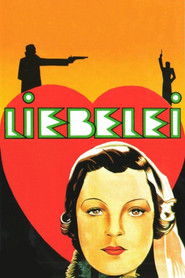
Liebelei
Vienna in the beginning of the twentieth century. Cavalry Lieutenant Fritz Lobheimer is about to end his affair with Baroness Eggerdorff when he meets the young Christine, the daughter of an opera violinist. Baron Eggerdorff however soon hears of his past misfortune...Year:
1933

Madame Wants No Children
Year:
1933
Der große Trick
Year:
1933
A pleasant patient
Year:
1932
Marriage with Limited Liability
Though "blessed" with a complex title, which translates as Marriage with Limited Liability, this German comedy was adapted from the more simply titled stage play Causa Kaiser. Composer Georg Kaiser is unable to secure a divorce from his wife, so he "lives in sin" with his singer-sweetheart Causa. The girl's wealthy uncle dies, leaving her millions -- provided she is married to Georg Kaiser. Hoping to take advantage of a legal loophole, Georg seeks out another man named George Kaiser, intending to marry him off to Causa so that she can collect her legacy. Georg Kaiser # 2 is a middle-aged naif who can't understand why his new bride is so cold to him. When he finds out he's been duped by Kaiser #1, Kaiser #2 finds solace in the arms of another woman closer to his own age, which somehow leads to a happy ending for all concerned.Year:
1931

We Need No Money
In this German comedy, an enterprising American uncle comes from Chicago goes to the tiny town of Groditzkirchen to make a fortune on credit even though he only has $10 to his name. To do so, he enlists the aide of a bank clerk and begins posing as a millionaire.Year:
1931
One Night at the Grand Hotel
Fritz is in love with artist Glay, who stays at the Grand Hotel. In spite of not having any money he gets to know her, invites her to supper and after dancing a tango even hires the royal suite. How will he get out of this is a mystery even to himself.Year:
1931
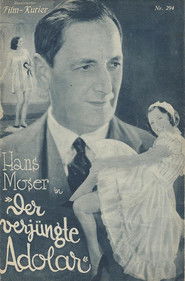
The rejuvenated Adolar
Year:
1931

Money on the Street
In this romance, a banker's daughter suddenly breaks off her engagement on her wedding day. She then meets a man who believes in easy money. He sees her as his meal ticket and the two take off together.Year:
1930
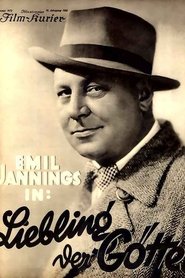
Darling of the Gods
Also known as Darling of the Gods, this was Emil Jannings' second talkie appearance. Jannings stars as famed operatic singer Albert Winkelmann, who is greeted with cheers, applause and romantic propositions whenever he performs in his native Vienna. But when he embarks on a tour of South America, tragedy strikes. The sweltering climate causes Winkelmann to lose his voice on stage, a disaster met with hoots and cat-calls. Dispirited he returns to Europe, where he soon learns that no one is aware of what happened in South America. Intending to retire so as not to be exposed to further humiliation, Winkelmann is goaded back on stage -- where, miraculously, his gorgeous voice returns.Year:
1930
Spitzenhöschen und Schusterpech
Year:
1928
Die Lampelgasse
Year:
1928
Madame wagt einen Seitensprung
Year:
1927

Die Familie ohne Moral
Year:
1927
Schützenliesel
Year:
1926
Der Feldherrnhügel
Year:
1926
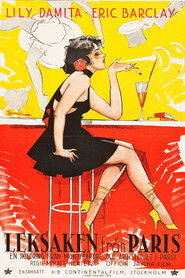
Red Heels
A British playboy in Paris marries a dancer and convinces her to give up her career to move to a small cottage in the country. One night at a party given by her former manager, she is persuaded to perform one of the dances she was renowned for. That leads to a fight with her husband, who runs out of the party in the middle of a raging storm. Her subsequent search for him ends up placing her life in danger.Year:
1925
Ssanin
Scenes from the beginning of the Russian revolution against the czaristic regime.Year:
1924

The City Without Jews
In the Republic of Utopia, because of the bad economic crisis ailing the nation, the Jews are made the scapegoats for the economic and social ills affecting the population; therefore, the government decides to expel them. Leo Strakosch is among the exiled. He is engaged to Counsellor's Linder's daughter. He gets into the Republic, in a clandestine way, to show to the society the wrongness of their anti-semitic prejudice. Bettauer's novel differs essentially from the film version. "Vienna" was named "Utopia". Even a happy ending was provided.Year:
1924

The Tales of Hoffmann
"The Tales of Hoffmann" - The story of the poet Hoffmann, who falls in love with a mechanical doll, loses his mirror image in Venice and finally liberates his lover from the clutches of a sinister doctor.Year:
1923
Kleider machen Leute
Early film adaptation of Gottfried Keller's well-known novella as a silent film. The plot revolves around a journeyman tailor who is thrown out by his master and, without his intervention, is forced into a lying role in which he takes on the role of a wealthy person.Year:
1921
Das Baby
The tiny Hans meets the woman of his dreams. She is a big powerful nurse. Hans disguises himself as a baby.Year:
1918